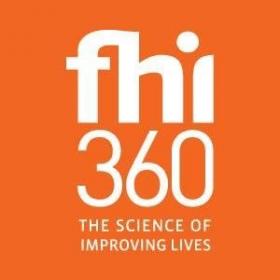IDDS is a five-year project that supports capacity building work that serves the Global Health Security Agenda, TB programs and other related initiatives. IDDS supports select governments and their relevant ministries in the strengthening of their human and animal health diagnostic systems for infectious diseases including zoonotics, TB and antimicrobial resistance (AMR). The work will focus primarily on public health systems but may also include private health and other non-governmental diagnostic facilities (laboratories and point-of-care facilities). IDDS is working in many countries across Asia and Africa and for this position, the DA will focus on strengthening TB diagnostic and surveillance systems in the Asia Pacific region.
The APIDDaR Program is a five-year Health Security Initiative for the Indo-Pacific region managed by the Centre for Health Security within the Australian Department of Foreign Affairs and Trade (DFAT). The Program will contribute to the avoidance and containment of infectious disease threats in the region.
The DA will provide technical support to the diagnostics systems capacity building of the IDDS and APIDDaR Programs and others. For IDDS the focus of the work will be TB. S/he will provide technical support to the design, implementation and monitoring of technical strategies to strengthen diagnostic networks that provide comprehensive coverage and universal access to diagnostic services with strengthened linkages to clinical care. This will include diagnostic network and facilities assessments, capacity building initiatives of both human and animal diagnostic networks, and implementation of strategies, programs or tools to support diagnostic network capacity building.
Work on the APIDDaR is contingent upon successful award of the project to FHI 360 and final DFAT approval of the candidate.
The DA will provide technical support to the design, implementation and monitoring of technical strategies to strengthen diagnostic networks that provide comprehensive coverage and universal access to diagnostic services. This will include diagnostic network and facilities assessments, capacity building initiatives of both human and animal diagnostic networks, and implementation of strategies, programs or tools to support diagnostic network capacity building. Specifically:
- Supports the development and implementation of technical assistance, diagnostic network and facility strengthening and quality improvement interventions in line with joint external evaluation (JEE) reports, country national action plans and other assessment reports including strategies and actions outlined in STOP TB reports (IDDS only).
- Supports the development of country-specific workplans and budgets for diagnostic network activities aligned with JEE, STOP TB (IDDS only) and local stakeholder improvement goals.
- Support the adoption of evidence-based diagnostic algorithms to improve TB and MDR TB case detection.
- Supports the implementation of diagnostic network enhancement activities in countries in Asia Pacific which may include capacity building activities for core diagnostic components such as specimen referral mechanisms, quality management systems, supply chain, management information systems, diagnostic SOPs and tools, qualified workforce, expansion of point-of-care diagnostic service points, and biosafety and biosecurity.
- Supports reporting of diagnostic network strengthening activities.
- Provides technical support based upon expertise with diagnostic systems strengthening, methods and strategies, current practice, and established diagnostic and operational standards while also being locally relevant and sustainable.
- Builds capacity in country and regional-level diagnostic staff and counterparts.
- Supports the development and implementation of strategies, workplans and quality improvement programs for diagnostic networks and facilities with reference to accepted standards and requirements.
- Provides technical assistance to diagnostic networks to strengthen the accuracy and timeliness of reporting into national reporting databases.
- Supports the strengthening of diagnostic-clinical care linkages and pathways.
- Supports cross learning and networking of laboratories and diagnostic facilities across Asia Pacific.
- Encourages and assists laboratories with preparing for and seeking accreditation through locally, regionally, nationally, and internationally accepted accreditation agencies, contingent on country demand.
- Stays up to date on innovations in diagnostics and laboratory strengthening approaches and ensures new knowledge/evidence and best practices are shared with project teams, partners and host countries, and applied as appropriate.
- At least five years of experience (combination of long-term in-country placement and short-term technical assistance) in diagnostics strengthening for TB and other infectious diseases in developing countries especially in Asia Pacific.
- Proven knowledge and experience in the diagnosis of infectious diseases and anti-microbial resistance including TB including specific hands-on clinical diagnostics experience.
- Competent in current developments in the diagnosis of infectious diseases including point-of-care and molecular methods.
- Knowledge with strengthening laboratories to achieve international quality standards including against ISO 15189 and/or SLMTA/SLIPTA or in-country standards.
- Good understanding of the external environment and how it affects diagnostic network functioning in general, including political, legal, environmental, financial and social influences.
- A demonstrated ability to work with multiple partners on collaborative projects.
- Experience implementing diagnostic network capacity building.
- Strong oral and written English language communication skills.
- Demonstrated interpersonal skills in facilitation and stakeholder engagement/coordination.
- Experience working in Asia Pacific
- Willingness and ability to travel a minimum of 25% within the Asia Pacific region and other travel as needed
Typical Physical Demands:
- Typical office environment.
- Ability to sit and stand for extended periods of time.
- Ability to lift 5-50 lbs.
Technology to be Used:
- Personal Computer, Microsoft Office (i.e. Word, Excel, PowerPoint, etc.), e-mail, telephone, printer, calculator, copier, cell phones, PDAs and other hand held devices.
